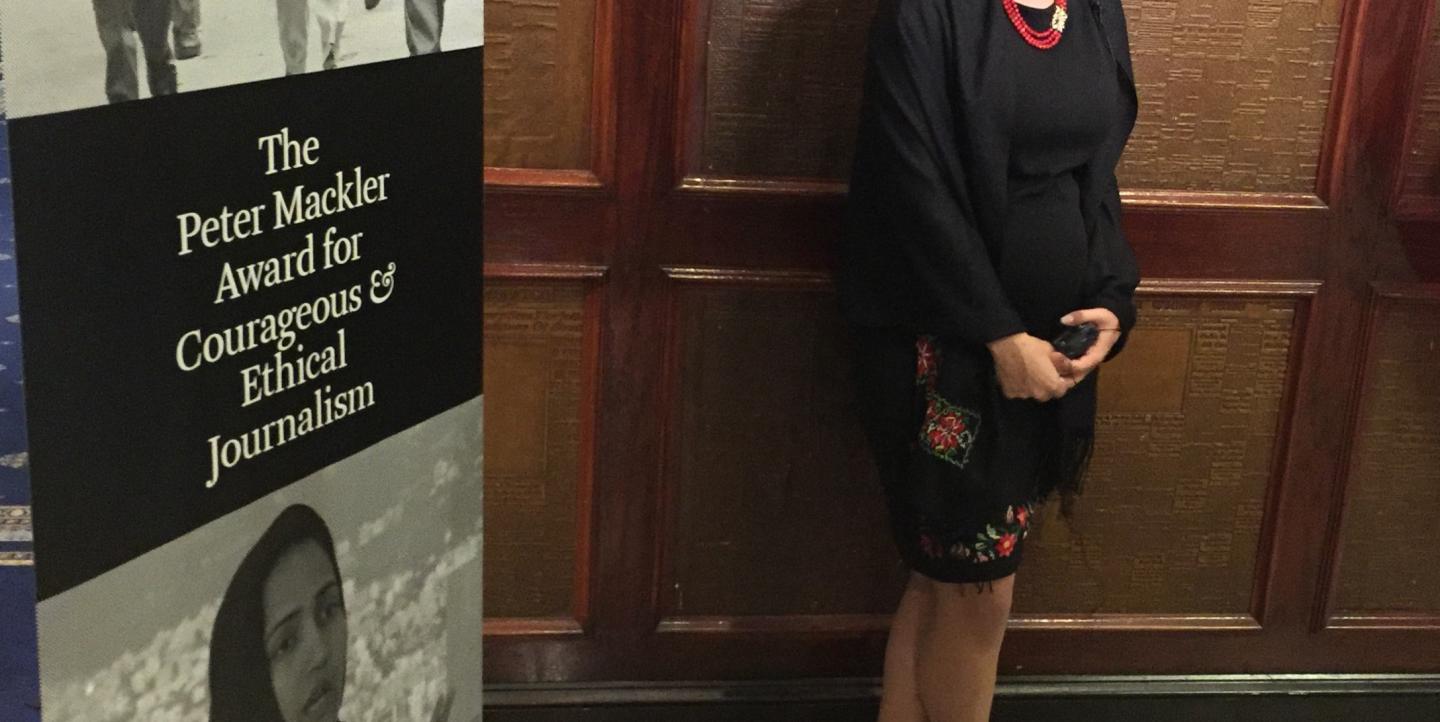After years of ongoing conflict between President Bashar al-Assad, the Islamic State (ISIS) and numerous other opposition and militant groups, the Committee to Protect Journalists cites Syria as the third-deadliest country for journalists.
For Syrian journalist Zaina Erhaim, working amid this danger has become an everyday routine. Based in Aleppo, one of the main sites of the Syrian civil war, Erhaim faces the constant threat of airstrikes, and safety is never a guarantee — yet she continues to report on the conflict despite this. Her reporting has appeared in The Economist, The Guardian and many other outlets.
As Syria project coordinator with the Institute for War and Peace Reporting (IWPR), Erhaim teaches dozens of Syrian civilians the necessary skills and strategies to become citizen journalists, all at no cost to them. About one third of the people she teaches are women. Her students’ work has been published in international publications, and she has helped them establish independent news outlets of their own.
We sat down with Erhaim just before she accepted the 2015 Peter Mackler Award for Courageous & Ethical Journalism in Washington, D.C.:
IJNet: How would you describe the media climate in Syria? What is it like for journalists there?
Erhaim: First, there are no actual journalists, within the traditional definition. There are none left, especially in opposition-held areas, which are the areas being bombed on a daily basis. For a citizen journalist, it’s a war zone. It’s considered to be one of the most dangerous places for journalists, so this is the situation. In this society, there’s so much that’s forgotten, because most of the training and most of the work is being done in the neighboring countries.
Being a Syrian journalist, as you would expect, is something much more different than just being a journalist in a war zone. For me, those people that I’m reporting and writing on, they’re dear friends and family members. Because you’re a journalist, you’re put on the wanted list of the regime, the military, the state and the air force, although I don’t even know how to ride a bike.
IJNet: You’ve trained more than 100 citizen journalists in Syria. What kinds of lessons do you try to teach them during your trainings?
Erhaim: Many of the people I train just became citizen journalists because of a lack of journalists, because professional journalists couldn’t make it into the country. So what I’m trying to teach them mainly is how to develop the skills that they gain by practicing and turning it into actual journalism. It’s mainly the basics of journalism — how to write news, how to make a feature, how to report, how to stay objective in these circumstances, just very general journalistic values.
IJNet: What do you do to stay safe while you’re reporting?
Erhaim: I can’t do anything, because death isn’t something you can avoid there. The main source of death is the airstrikes, and there’s no way to skip that. They mainly target civilians, so even if you avoid all the military bases, that doesn’t protect you from being hit. So the only thing that you can do is just hope that you won’t be killed.
I remember also I’ve done a training when ISIS was still in Aleppo city, before it was kicked out by rebels, that was one of the hardest trainings I’ve ever done. At that time, ISIS started kidnapping citizen journalists who were working in the city. They kidnapped three, and then we decided that we should be helping those who are left here, because those are the only sources to report on what ISIS was doing. So I did the training, I had about 10 citizen journalists. I told people in person where the training was just the night before, and I asked them not to bring any cameras, and not to come alone in case they got kidnapped. It’s all such things that you have to put in perspective.
IJNet: You’ve taken on pieces like your profile on Syrian women that likely wouldn’t have been possible if a man had tried to write it. Does being a woman journalist have an impact on your work?
Erhaim: It does, definitely. Most of the northern areas of Syria are considered to be conservative. They’re not used to seeing women doing street work like journalism, so just being a woman is something that they don’t expect. Being a woman with a camera is something that grabs lots of attention, and attention in these circumstances is not something good. There are lots of spaces that I can’t access because I’m a woman journalist. But on the other hand, being a woman journalist gave me the chance to get into some houses that my male colleagues wouldn’t be able to get into, and some spaces that no male citizen journalist would be able to go in or to cover, so it has some pros and cons.
IJNet: Right now, citizen journalism is the only way to cover what’s going on in Syria. Do you see it ever getting better, for journalists or civilians?
Erhaim: It’s getting worse for everyone. For civilians, for citizen journalists, for all of those who are still living in the areas of conflict and even in neighboring countries. So sadly, I don’t see it getting better at all.
This interview has been condensed and edited.
Main image taken by Sam Berkhead.

